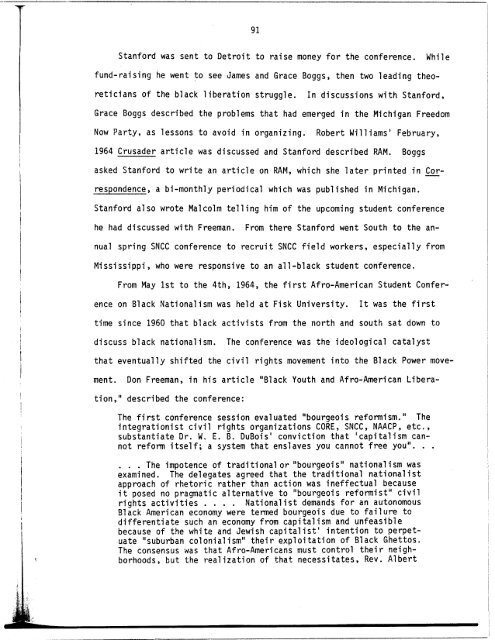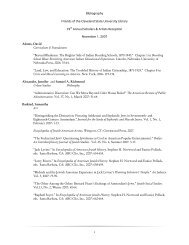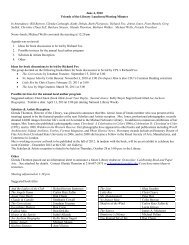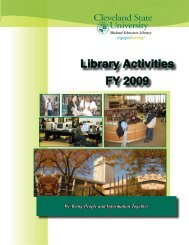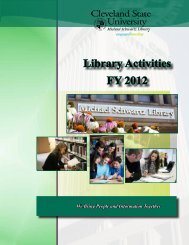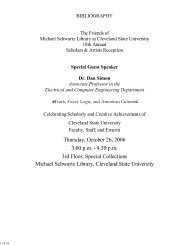revolutionary action movement (ram) - Michael Schwartz Library
revolutionary action movement (ram) - Michael Schwartz Library
revolutionary action movement (ram) - Michael Schwartz Library
You also want an ePaper? Increase the reach of your titles
YUMPU automatically turns print PDFs into web optimized ePapers that Google loves.
9 1<br />
Stanford was sent to Detroit to raise money for the conference . While<br />
fund-raising he went to<br />
see James and Grace Boggs, then two leading theoreticians<br />
of the black liberation struggle .<br />
In discussions with Stanford,<br />
Grace Boggs described the problems that had emerged in<br />
the Michigan Freedom<br />
Now Party, as lessons to avoid in organizing . Robert Williams' February,<br />
1964 Crusader article was discussed and Stanford described RAM . Boggs<br />
asked Stanford to write an article on RAM, which she later printed in Correspondence<br />
, a bi-monthly periodical which was published in Michigan .<br />
Stanford also wrote Malcolm telling him of<br />
the upcoming student conference<br />
he had discussed with Freeman . From there Stanford went South to the annual<br />
spring SNCC conference to recruit SNCC field workers, especially from<br />
Mississippi, who were responsive to an all-black student conference .<br />
From May 1st to the 4th, 1964, the first Afro-American Student Conference<br />
on Black Nationalism was held at Fisk University . It was the first<br />
time since 1960 that black activists from the north and south sat down to<br />
discuss black nationalism . The conference was the ideological catalyst<br />
that eventually shifted the civil<br />
rights <strong>movement</strong> into the Black Power <strong>movement</strong><br />
. Don Freeman, in his article "Black Youth and Afro-American Liberation,"<br />
described the conference :<br />
The first conference session evaluated "bourgeois reformism ." The<br />
integrationist civil rights organizations CORE, SNCC, NAACP, etc .,<br />
substantiate Dr . W . E . B . DuBois' conviction that 'capitalism cannot<br />
reform itself ; a system that enslaves you cannot free you" . . .<br />
. . . The impotence of traditional or "bourgeois" nationalism was<br />
examined . The delegates agreed that the traditional nationalist<br />
approach of rhetoric rather than <strong>action</strong> was ineffectual because<br />
it posed no pragmatic alternative to "bourgeois reformist" civil<br />
rights activities . . . . Nationalist demands for an autonomous<br />
Black American economy were termed bourgeois due to failure to<br />
differentiate such an economy from capitalism and unfeasible<br />
because of the white and Jewish capitalist' intention to perpetuate<br />
"suburban colonialism" their exploitation of Black Ghettos .<br />
The consensus was that Afro-Americans must control their neighborhoods,<br />
but the realization of that necessitates, Rev . Albert


